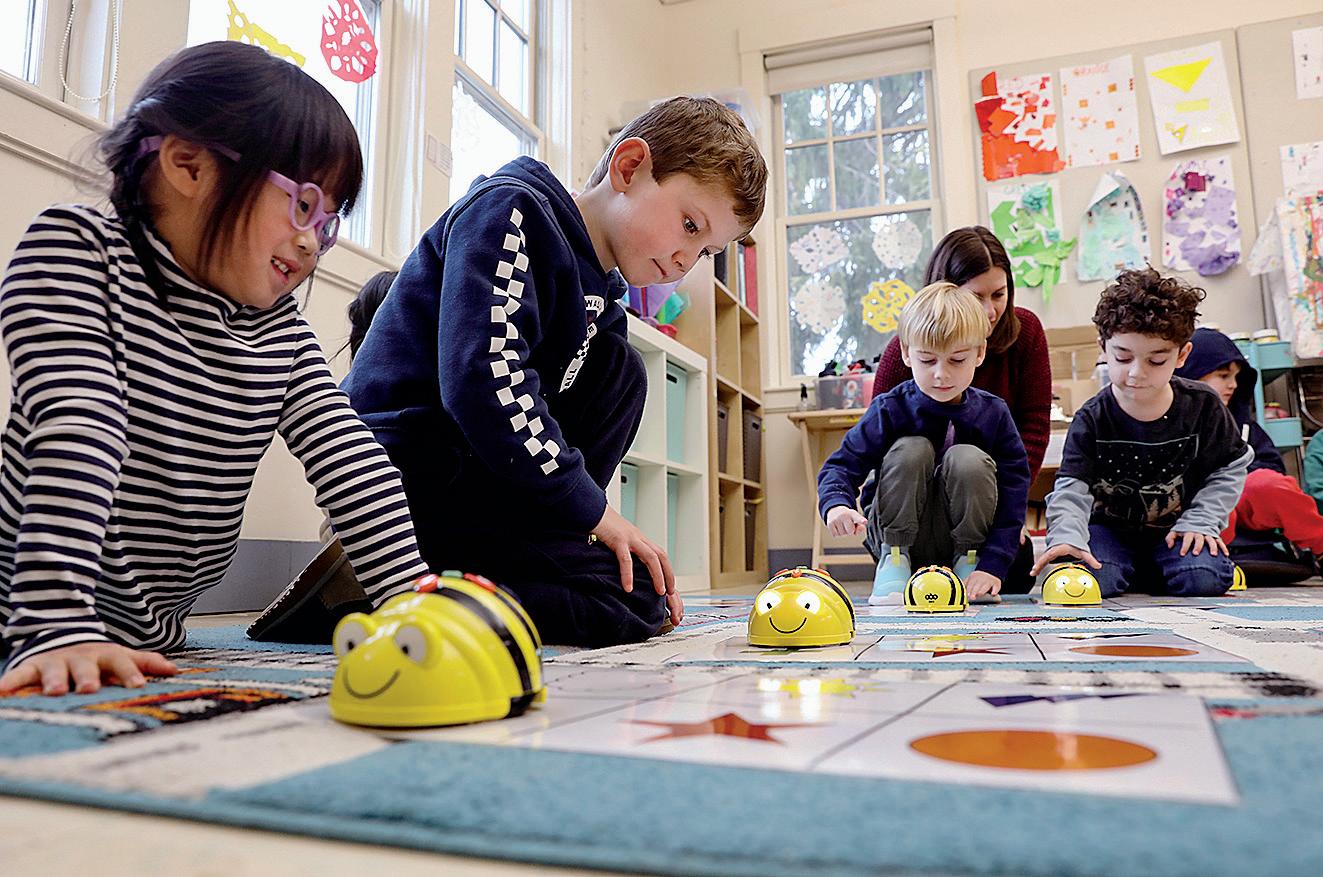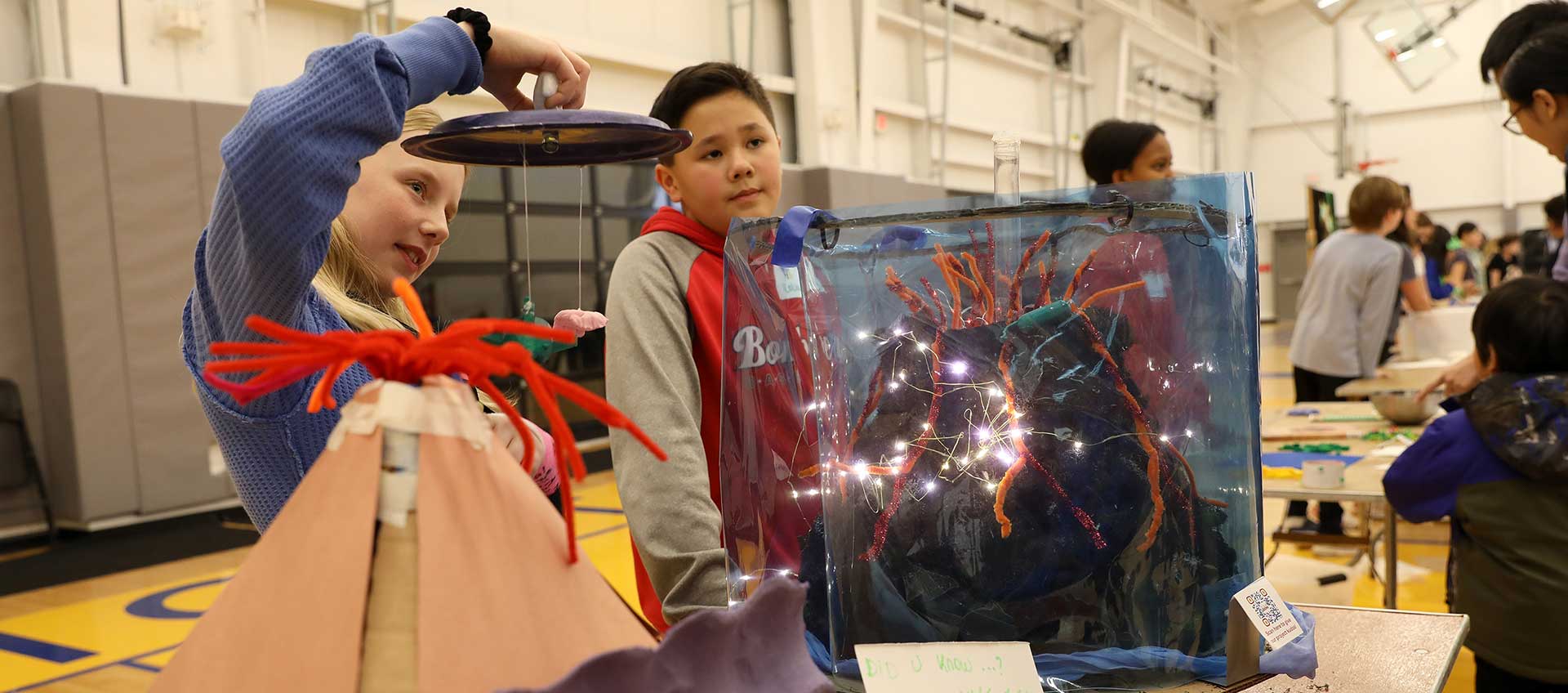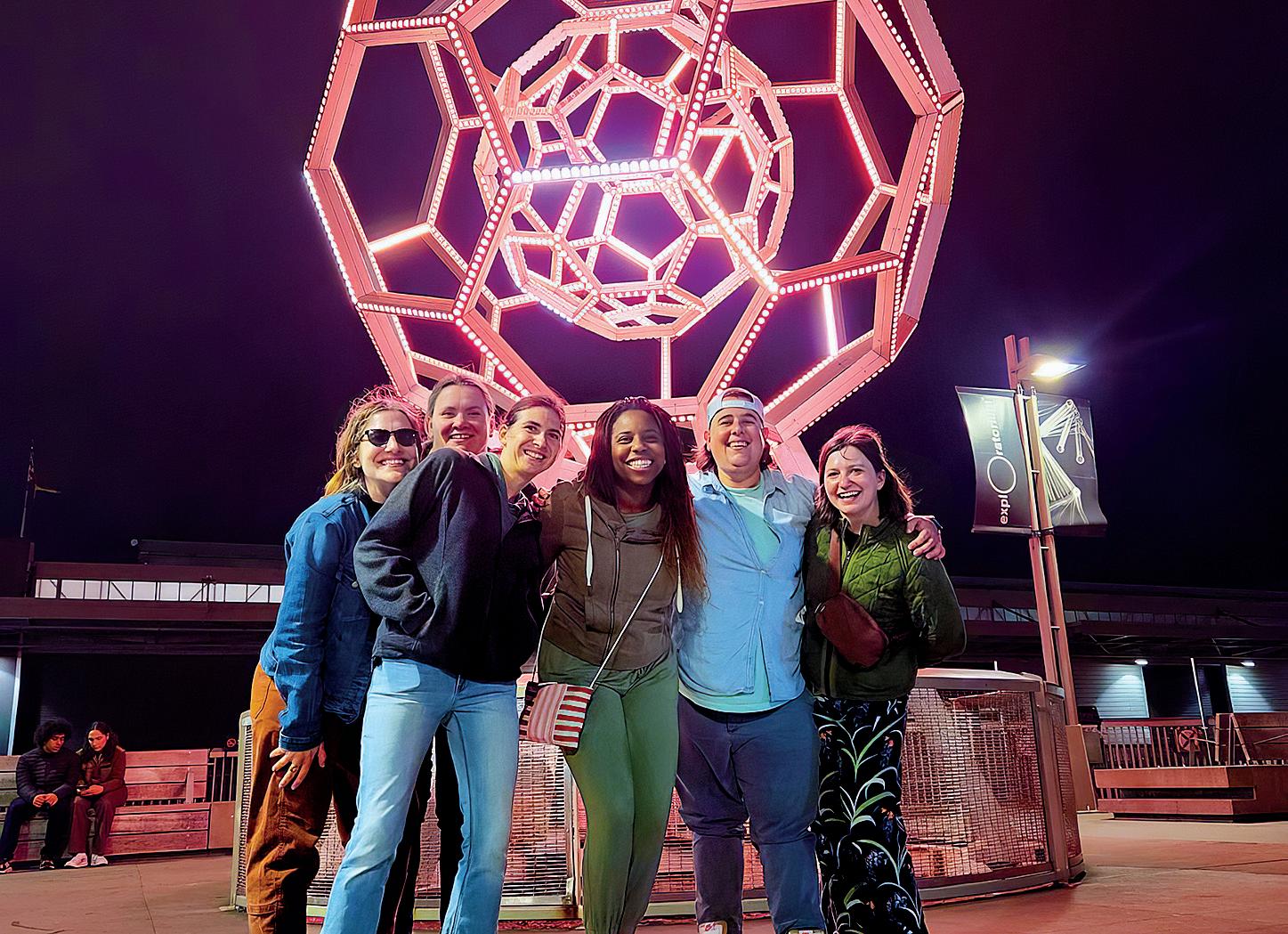
4 minute read
Focusing on Real-World Problems and Process
Innovation at Belmont Day means doing things differently enough to achieve better results
This year, the school applied this principle to the innovation and technology teams and expanded their composition and approach. They are looking at how to empower students and teachers to create more than they consume, use innovation to solve local rather than hypothetical problems, and understand that innovation depends on creativity and iteration, not technology.
In addition to Director of Innovation Annie Fuerst and Librarian Amy Sprung, the team now includes Innovation Coach Brit Conroy. The technology team comprises Technology Coordinator Conor Garrison and Systems Support Specialist Patti Domingo, who ensure the infrastructure, tools, and systems run well to support innovation in all areas of the school.
The IMPACT Lab and the Erskine Library are the two primary teaching spaces for the innovation team. Scheduled touchpoints in those spaces include library time, digital arts electives, and IMPACT Lab class. Annie, Brit, and Amy also built more flexible time into their schedules to support teachers and students on innovative projects in the classrooms.
In pre-kindergarten, the team supported the class as it studied mazes and how different pathways can lead to the same place. The students created a school map and learned to program Bee-Bot robots to follow the map, bringing in modeling skills and computational thinking.
Third grade’s city project typically concludes with students creating a cardboard model of a prototype city. Teacher Larissa Rochford ’93 P ’18 looped in the innovation team as she sought an extension project for her students. That collaboration led the class to take a field trip to Belmont Center. By interviewing business owners and other workers there, students learned what goods and services are necessary for a community. After returning to school, they used engineering and design skills to create their towns. “For me, the big innovation in that project is creating opportunities for students to learn from their community,” Annie says.
Reflection is an integral part of practicing innovation. Fourth graders use engineering journals to document their work. Annie says a particularly perceptive student comment amused the adults: “I learned that no matter how good your plan is, if you don’t communicate, you won’t be able to get anything done.”
A group of middle schoolers used an innovation mindset to create a new performance opportunity to highlight the talents of their peers. They proposed hosting a BDS Music Showcase to their music teachers, Kassie Bettineli P ’23 and Tyler Cotner, who, in response, designed two arts electives that would help bring this student idea to life. Sixth grade students designed set pieces; students in the audio tech elective ran the soundboard; and students in the music showcase elective were the event planners, lighting designers, stagehands, and showrunners.
“It’s cool to see their ability to engage the community,” Annie says. “I think that kind of giving of your time, resources, and energy ties into the true spirit of service for the common good.”

The first STEAM Expo last spring was a showcase for collaboration and project-based learning emphasizing process. “We’re excited about chances for students to highlight their process, and they’re excited to tell you about everything they learned while making something.”
Faculty Professional Development
Professional development at Belmont Day now falls under Annie’s stewardship. When teachers seek professional development opportunities, they are asking an innovation question: How can I grow my practice to achieve better results in the classroom?

Six faculty members attended the summer Design Thinking Institute at the Nueva School in California. Design thinking offers a defined innovation process, including brainstorming, iteration, and refinement. “Nueva’s approach to innovation and design work centers empathy,” says Annie, who led the team’s professional development experience. “During the week, we spent a lot of time learning how to interview people, pinpoint needs, listen intently, and design thoughtfully. This process aligns with Belmont Day’s approach to innovation, so the experience was particularly meaningful and impactful.”
Technical seminars and offerings on topics like computer music education and the ethical use of artificial intelligence (AI) engaged the innovation and technology teams at the fall Massachusetts Computer Using Educators (MassCUE) conference.




